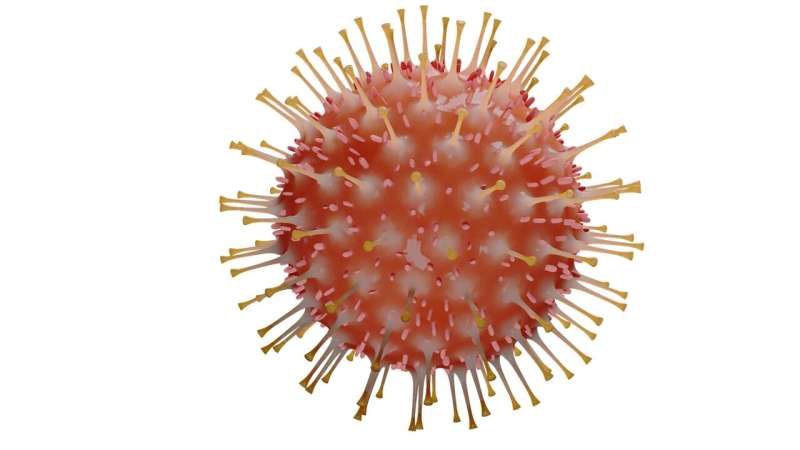Epidemiologist awaits clearer picture on omicron

The COVID-19 variant omicron triggered widespread alarm over the weekend, with the U.S. and other countries moving to restrict travel from southern Africa, where the variant was first detected. On Monday, the World Health Organization, having already stamped omicron with its most serious tracking designation, warned that the variant poses a "very high" global risk. Cases have been identified in more than a dozen nations, including Canada.
Earlier this month, Mary Bushman, a postdoctoral research fellow in the Department of Epidemiology at the Harvard T.H. Chan School, co-authored a paper that modeled the impact of hypothetical variants on populations practicing a combination of masking, distancing, vaccination, and other COVID safety measures. The research singled out Delta-like variants—which combine high transmissibility with an ability to evade immune response—as a potentially devastating threat. We talked to Bushman as the world reacted to the emergence of omicron. The interview has been edited for clarity and length.
Q&A: Mary Bushman
GAZETTE: The new study, published in Cell, says that variants demonstrating both greater transmissibility and an ability to escape the immune system (i.e., cause breakthrough infections), rather than either trait in isolation, are the ones we should worry about most. Do we know how omicron fits into this framework? And, if not, when might we?
BUSHMAN: Short answer: We don't know yet. Longer answer: The variant has a number of mutations that hint at the potential for immune escape or increased transmissibility, but that's conjecture, based on laboratory studies that are done at the cellular level. Those results don't always hold up in real life, which is why it's so important to do epidemiological studies that tell us how this variant behaves in people. There is data from South Africa showing that omicron appears to have rapidly overtaken Delta to become the dominant strain in some areas, which could be attributable to immune escape and/or enhanced transmissibility, but not necessarily. At the moment, we don't have the necessary information to distinguish between increased transmissibility, immune escape, and other factors.
GAZETTE: Is it likely that the current vaccines offer significant protection against the new variant?
BUSHMAN: Still too early to say, but studies are underway to find out. One good thing about the mRNA vaccines is that, in addition to antibodies, they provide protection in the form of T cells (a type of white blood cell). T cell responses may still provide partial protection even if mutations allow the virus to escape from antibodies.
GAZETTE: From a public health perspective, why impose travel bans? The most anyone will say is that the measure can buy time. How much, and how will scientists use it?
BUSHMAN: Travel restrictions are almost always too little, too late. Patchy surveillance means variants can spread quite far before they're detected, and containment measures are usually leaky, so they don't do a good job of keeping things out. In any case, it's not clear that additional time would do us any good. We don't have enough information to take targeted action, and while broad measures like low-cost rapid testing could make a big difference, we don't seem to be doing anything on that scale.
GAZETTE: If, a few weeks from now, omicron starts to wane and we find that it was mostly a false alarm, what are the most important lessons we should take from the experience? What can the world do to reduce the chances of a variant that lives up to the most dire predictions?
BUSHMAN: All signs point to the need for more vaccination in low-income and lower-middle-income countries, especially Africa. Vaccines are needed first and foremost to protect the people in countries that currently have low rates of vaccination, but by limiting the spread of the virus, we also limit opportunities for new variants to evolve.
This story is published courtesy of the Harvard Gazette, Harvard University's official newspaper. For additional university news, visit Harvard.edu.


















